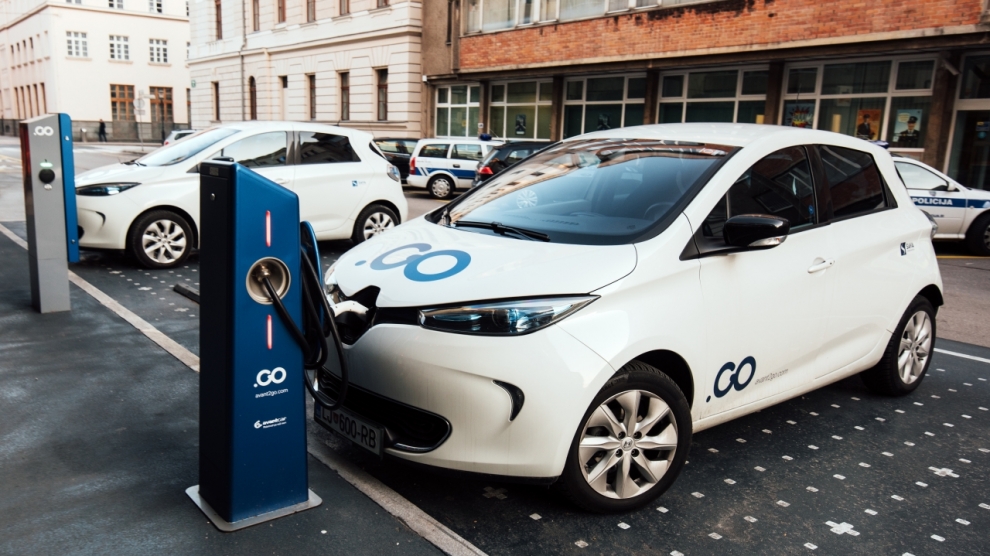The registration of new diesel and petrol cars in Slovenia will be forbidden after 2030. The government has adopted a strategy on the use of alternative fuels in the transport sector requiring that the total carbon footprint of a car must be less than 50 g of CO2 per kilometre, a standard which currently only electrical vehicles and plug-in hybrids meet.
“This move will promote the spread of electrically powered vehicles, hybrid vehicles and fossil fuel vehicles which have a significantly less negative impact on the environment than those we use today,” said the Slovenian government in a statement.
Currently, Slovenia has one of the highest car ownership rates in the world, 523 cars per 1,000 individuals (in 2016). Almost 1,470,000 road vehicles were registered in the country, a 2 per cent increase on the year before. Of these, 1,097,000 were passenger cars. A total of 53 per cent of registered passenger cars use petrol, 46 per cent diesel and 1 per cent liquefied petroleum gas (LPG). The latest data from car dealers show 900 electric or hybrid vehicles were sold in the first eight months of 2017, almost triple the number sold in the same period in 2016.
The government expects 17 per cent of all passenger cars and 12 per cent of vans and small lorries registered in Slovenia to be either electric vehicles or plug-in hybrids in 2030. Also, a third of all buses will use natural gas and 12 per cent of heavy lorries will use liquefied petroleum gas.
The government’s strategy also calls for the construction of infrastructure for alternative fuels to expand the current network of charging stations from 227 to 1,200 by 2020, 7,000 by 2025 and 22,300 by 2030.
“The industry will have a complete range of vehicles (all-electric, hybrid) ready, and the question is whether other stakeholders will be prepared. By this we mean primarily the proper charging infrastructure and the establishment of smart grids. End users will also play an important role, as the acceptability of these vehicles is primarily in their hands,” Tanja Mohorič, director of the Slovenian cluster of automotive suppliers, told Delo.
How the electricity will be generated is also important. “The government’s strategy, as expected, follows the strategy of some European countries, including France and the United Kingdom,” Uroš Rosa, director of the Akrapovič production of exhaust systems, told Delo. “It is a trend in which the key question is how to obtain electricity for charging electric vehicles. It is a global issue. Without a major leap in the production of electricity from renewable sources, there will be no less CO2 emissions.”
According to the International Energy Agency, over a dozen other countries have set official targets for electric car sales: France, the UK, India, Norway, Austria, China, Denmark, Germany, Ireland, Japan, the Netherlands, Portugal, Korea and Spain.






Add Comment